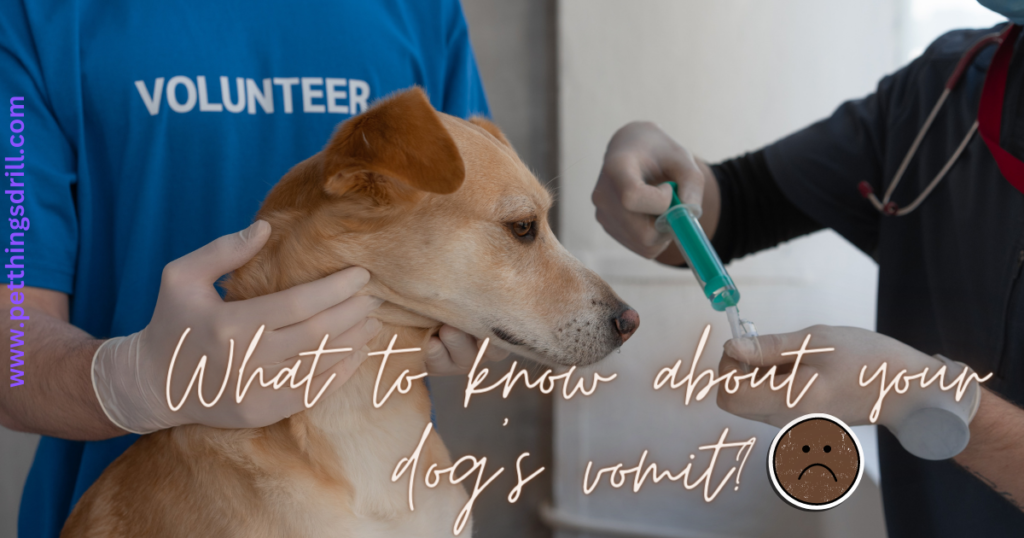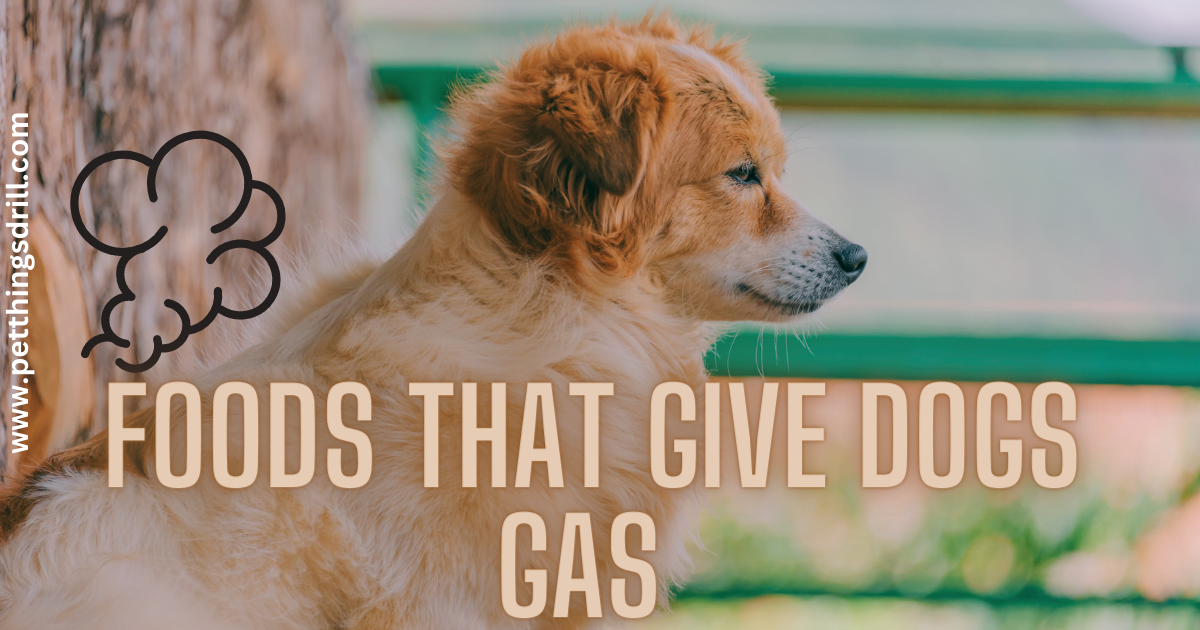


Vomiting is a common symptom of many diseases in dogs. It is not a specific disease, and it happens when your dog eats something unsuitable for its stomach. Dog vomiting may happen for several reasons, such as eating too fast or too much. Sometimes it could be dangerous for your dogs and a sign of severe disease requiring a vet visit. One should consider the following before assuming it is just a simple case of vomiting. Following are some steps that give you what to know about your dog’s vomit.
Vomiting?
Vomiting signifies the body is trying to get rid of something. Vomiting is a natural process in the canine digestive system. It’s a reflex that helps the dog remove anything from its stomach that it doesn’t want to eat. There are many different reasons to know about your dog’s vomit, and it’s essential to know the symptoms to identify the cause.
Many things can trigger the vomiting process, such as:
- A change in diet or food type
- Gastrointestinal disease
- Obstruction of the gastrointestinal tract
- Foreign objects in the stomach
- Infection
- Allergies
- Stress
- Food poisoning
Why is my dog vomiting?
There are many important factors to consider when determining the cause of vomiting. It could get worse than you think if you ignore it. For example, puppies often vomit due to teething or overeating too quickly. Older dogs may vomit due to cancer or kidney failure. The most common causes of vomit are food poisoning, viral infection, and stomach flu.
Moreover, other causes may be a blockage in the intestine or problems with the oesophagus. Vomiting is not usually harmful but can lead to dehydration and electrolyte imbalances. Hence, it is essential to get treatment if vomiting continues for more than 24 hours or if there are other symptoms like fever or abdominal pain.
Types of vomits?

Vomiting in dogs can occur with a wide range of different diseases and medical conditions. There are many types of vomit, and it can be tough to know what type you’re dealing with.
Hematemesis:
When blood is present in the vomit, it can lead to this term. It may also be called “bloody” or “coffee ground” vomit.
Melena:
A severe term can happen when digested blood is present in the vomit.
Vomitus:
This vomit happens when recently eaten food comes up from the stomach through the esophagus and out of the mouth.
Nausea:
This includes vomiting that doesn’t include any other substance (such as food). A stomach bug or other illness usually causes it, but it can also be caused by motion sickness or anxiety.
Tumescence:
Tumescence happens when there are no contents in the stomach. Instead, the stomach has expanded due to gas buildup and pressure on its walls from within.
Causes of vomit
Various reasons could cause dog vomit. If your dog is vomiting but acting normally, it can also be a big concern. The most common cause of vomiting in dogs is eating something that does not agree with them. Intestinal blockages, pancreatitis, parasites, and other illnesses can cause vomiting. Vomiting can also be caused by anxiety or stress, which is why some dogs may vomit when left alone or after a traumatic event like being hit by a car. Dogs vomit for a variety of reasons. The most common cause of vomiting in dogs is eating something that does not agree with them.
Vomit color guide
The color of vomit can tell you a lot about your dog’s health. Identifying the color and appropriate action on dog vomiting and when to worry is essential. This article will examine what to know about your dog’s vomit. The color, consistency, and volume of the vomitus are also essential factors in determining the cause.
- Yellow vomit is caused by eating too many fatty foods or if your dog has an upset stomach.
- Red vomit usually indicates blood in their stomach or eating something they shouldn’t have, like paint or grass.
- Brown vomit usually means that they ate chocolate or coffee grounds which are toxic to dogs.
- Black vomit means your dog ate coal, which is also toxic to them.
- Green vomit means it was a leafy vegetable like spinach or kale. It isn’t harmful to dogs but might be upsetting because it’s not what they expect to eat.
- Clear vomit could be from anything but likely just water from their drinking bowl and doesn’t need any treatment.
Treatment of vomit

Dog vomit can be a severe health hazard for both humans and dogs. We need to know the causes of dog vomit and how to treat it. As discussed before, different types of vomit require different treatments. For example, suppose the vomit contains food particles. In that case, it is just a case of giving the dog more water and waiting for it to pass naturally. If the vomit contains blood or bile, the cause may be more serious, and you should consult your veterinarian immediately. Then the vet suggests what should be given to your dog. Suppose your dog vomits because of a stomach bug. It would be best if you fed them small amounts of boiled chicken mixed with rice and boiled vegetables every hour until they’re better.
How to stop throwing up at home?
There are a few things that you should know about dogs’ vomit. The first is that it is not necessarily a bad thing. It is essential to understand the cause of the dog vomiting first and then if it’s something that can be fixed or not. The next thing you should know about dog vomit is how to stop it from happening and what you can give your dog to stop vomiting. There are a few ways to do this: feeding your dog smaller meals more often, taking your dog for walks can help stop vomiting in your dog, and giving your dog probiotics could help. And if it worsens, you should go with your dog to the vet for a checkup.
Foods that can cause vomit in dogs?
The foods that can cause vomit in dogs are not limited to just one type. All types of food can be a problem for your dog. You cannot know what will make your dog sick until you feed it. Not every type of food will cause vomit in dogs. Still, some of the most common ones are onions, citrus fruits and juices, fatty foods, grapes, raisins, dairy products, and chocolate. So it would be best if you avoided giving your deary fluff these kinds of food that can be a big problem for you and your dog.
Conclusion
This article concludes. Dog vomit is not a pleasant topic to discuss. Still, it is crucial for pet owners and veterinarians alike to know how to handle the situation. It is essential to know that dog vomit is not harmful if ingested in small quantities. Dog vomit is a common problem in the world of pet owners. However, here are a few things to know about your dog’s vomit. First, it’s not an emergency if your dog vomits once or twice. It is usually caused by overeating food or drinking too much water. If they vomit more than two times, it is an emergency, and you should call your veterinarian immediately.

